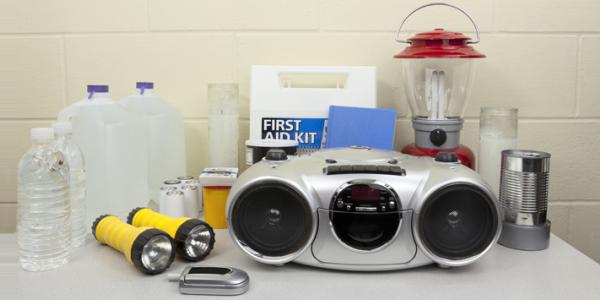
Some disasters strike without any warning, but oftentimes we have some warning and can plan ahead. Learn how to prepare yourself and your loved ones for power outages this season.
Skip
Before an outage:
- Sign up for alerts – Sign up to receive alerts from your local power company. With alerts, you’ll receive up-to-date information on possible outages, expected length of the outage and when you can expect power to be restored. To receive direct PG&E text alerts applicable to your area, text ENROLL to 976-33.
- Have an emergency plan – During a power outage, phone lines may be down, and cell phone tower coverage may be spotty. Have an emergency family plan so that you know your loved ones will be safe. Also, learn about emergency plans for your children’s school or day care center. Ask your workplace about emergency plans.
- Have supplies – You should have an emergency kit that covers all family members and pets. A standard emergency kit should include:
- One gallon of water per person per day, sealed in unbreakable containers
- Non-perishable packaged or canned food and a non-electric can opener
- Change of clothing, rain gear and sturdy shoes
- Blankets or sleeping bags
- A first aid kit and prescription medications
- An extra pair of glasses
- A battery-powered or crank radio, flashlights and plenty of extra batteries, and power banks for cell phones
- Cash or traveler's checks
- An extra set of car keys
- A list of family physicians
- Special items for infants, elderly or disabled family members
- If you live in an area prone to power outages, you may want to have a generator on hand.
During an outage:
- Shelter in place – If possible, avoid driving as street lights and signals will likely also be without power. If you are on the roads and reach an intersection without a working signal, treat it as a four-way stop. Gas stations and ATMs may also be down. Those who have medical equipment that require power should be taken to locations with generators or a friend or neighbor’s home that hasn’t been impacted.
- Keep all fridges and freezers closed – This will help keep the temperatures inside cool for hours.
- Stay away from downed power lines. Treat all fallen wires and anything touching them as though they are energized. Immediately report downed lines to your local electric company.
- Turn off all appliances, including your furnace, air conditioner, water heater, and water pump. Leave on one lamp to know when power has been restored. That way, you can avoid a circuit overload and another outage that may result when power is restored to all appliances at once.
- Keep entertained – Have board games and paper books and magazines on hand to keep your family entertained during a power outage.
- For emergency situations that threaten life or safety, call 911.
With just a little time, effort and money, you can be prepared with the supplies you and your loved ones need to survive a power outage or emergency. It can be a wise and potentially life-saving investment.

